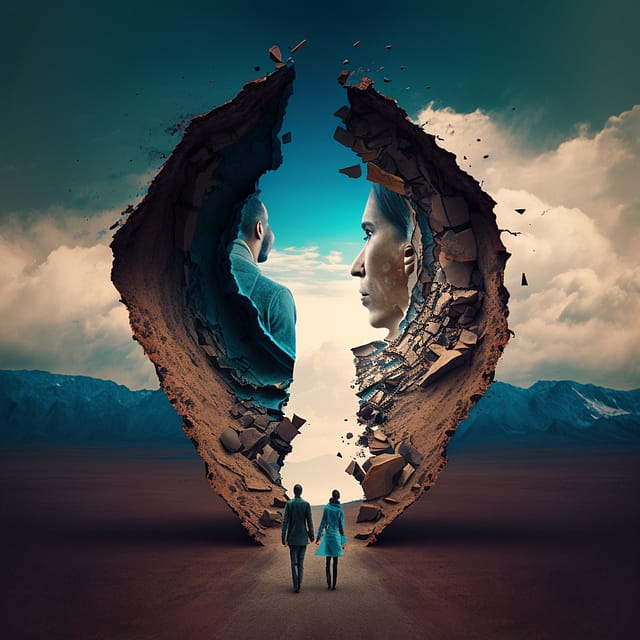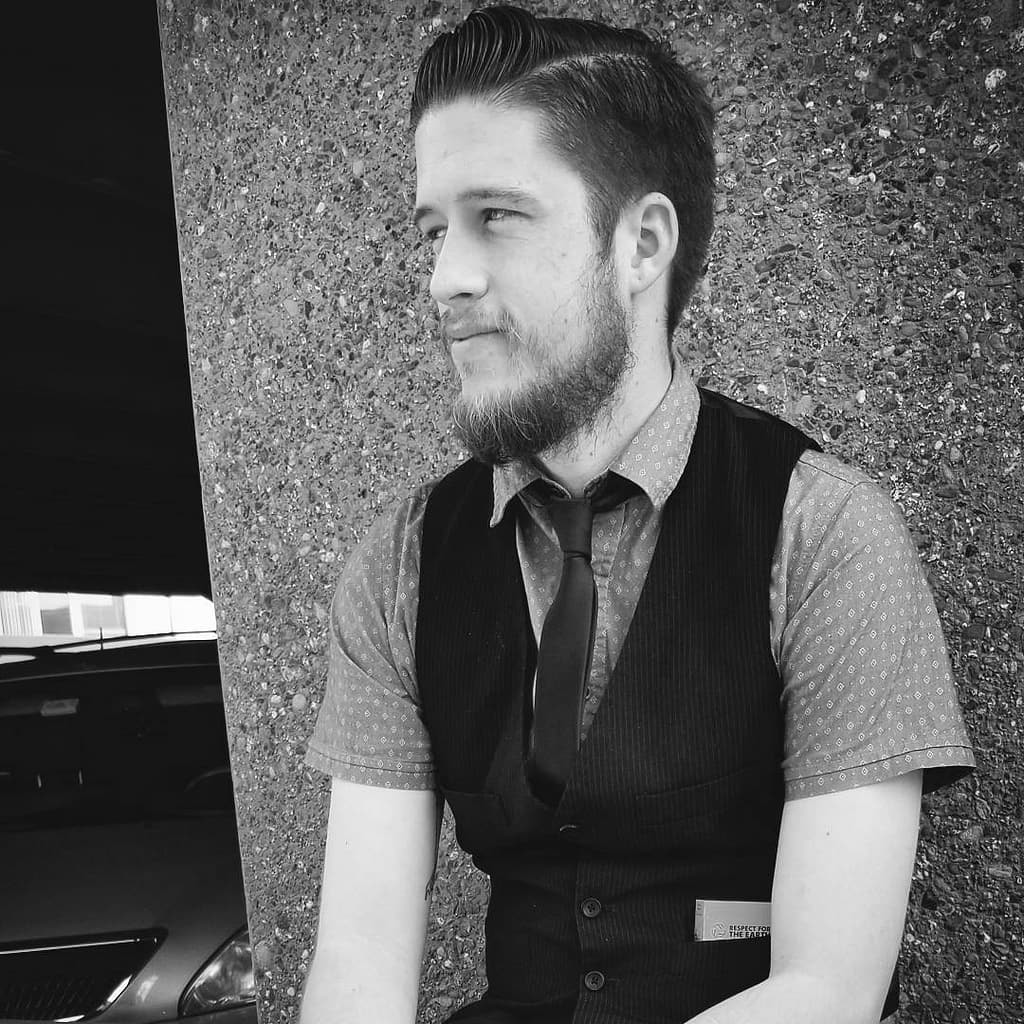
The New Normal: A Clarified Social Anxiety Calling for Self-Love
I’m having this consistent “Social Anxiety” experience with my in-person hangouts that is pretty uncomfortable.
The story I’m telling myself goes like this: at the very beginning of hanging out, I’m so excited to be liberated from my work-from-home isolation that my body is flooded with serotonin and oxytocin. I’m confident, chatty, and excitable and people seem to enjoy my jokes.
Then, some time towards the end of hanging out, some moment of awkwardness causes me to plummet into anxiety.
That ambient icy fear feels like the hangover or withdrawal from my surge of happy connection chemicals. Stewing in it on the trip home, I’ll make all these connections between half-remembered examples of the body language or subtle word choices or whatever of the people I just left. This string of anxieties coalesces into a paranoid narrative about how I’m totally unlovable and they hated being around me the whole time.
I think my only option is exposure therapy, but it’s already incredibly challenging to engineer situations where I’m around people in-person, thanks to the orientation toward isolation of the—especially post-plague—suburbs. I don’t have friends in meatspace anymore. I don’t even have hobbies that engage my meat.
It’s so painful to be alone all the time… but I’m scared of crowds. It’s as if school bullies, terrorism, mass shootings, and the plague have crammed me, nervous, ever more tightly into a lonely home office bubble.
Is this fear and distrust the new normal? Do I have to resign myself to VR hangouts and nothing but ChatGPT for company?
It’d be easier if I was a misanthrope. At the beginning of covid I was excited by the relief from social obligations. Now, I feel like I’m lacking a basic nutrient my soul needs to thrive.
Daniel Quinn’s Ishmael introduced me to the argument that Genesis captures this predicament in metaphor. Before we developed the ability to name the animals and evaluate their benefit or harm to humanity, we ate freely. Governed by intuition and instinct that evolved in order to create symbiosis with our environment, we felt supported by our surroundings in return.
Gathering lunch didn’t demand the “sweat of our brow” until we got the knowledge of good and evil that condones pesticides for “evil” beings, those that have no utility value to humans. However, as Charles Eisenstein points out in his book, Climate, we’ve often been wrong about the impact on complex systems that needed those “pests” to function.
We have hobbled ourselves.
Limping on legs flayed of their endangered flora and fauna, our environment no longer seems like an ally. Instead, we sense something essential has been removed and the dominoes are collapsing. We struggle like cut flowers: safe in vases but lacking soil, we’re waiting to die.
The same way I am separated from my ecosystem by my culture’s murderous opposition to any being that isn’t food, I am separated from my neighbors by intricate social rules. Faux pa, shame and taboo and the anxiety and self-aversion that marks my inevitably inept noncompliance with them.
How could I have been trained to assimilate in the context of my suburban culture’s emphasis on bootstrapping self-reliance by individuals or by their atomic family unit? Why would I have desired to assimilate with a civilization that produces so much self-aversion in its constituents that they become bullies, terrorists, and mass-shooters?
As if propelled by a flywheel we’ve all long ago abandoned any hope of slowing down, social media algorithm’s prioritize content that makes our neighbors even scarier. Those alt-reich anti-maskers are out to get you. Those satanic pedophiles know where you live. Those fascists. Those Others.
Every trauma forces us further into isolation.
I feel more and more fear of my neighbors. And through their fear of me, I develop more and more aversion to myself. Shame that occasionally flirts with the designation “self-hatred” and that always tilts me more toward hiding.
Is this the addict’s rock bottom?
Are you experiencing a moment of clarity, too?
I’m identifying these patterns for the first time, the novelty of re-entering social spaces spurring a fresh curiosity and mindfulness. This is my first apprehension of these loops of social anxiety and frustration. Do you also feel the hype of connection and the terror of connection’s withdrawal?
Absent experiences of our fundamental unity—outside of liminal spaces like concerts and psychedelic trips—we grow up believing we’re unlovable. At the risk of invoking a just-so evolutionary psychology story, my anarchoprimitivist parts fantasize about the Dunbar’s Number -sized tribe I evolved to inhabit. In a tribe that was more interdependent, I’d have to have a deeper, felt sense of interbeing.
If my neighbor helped six year old me with the scraped knee I got outside their house, maybe I’d feel supported by my community. Maybe I’d have gotten the message, therefore, that I’m worthy of support. Would I experience that ability to rely on my neighbors as love? Could I, then, know myself as lovable?
Could I love myself?
And what would change if I did? If we all did.
Secure in the belief that I would be accepted lovingly by my community, I’d feel less desire to hide behind the walls of my home-office, the metal and glass of the bubble on wheels I chug down the highway in, or the AirPod barrier between me and the dog park.
Fundamentally, it’s true. There are no separate things. There are only separate ideas of things. Concept clouds with borders so fuzzy they often dissolve completely on close examination.
Forgive my language addled brain, though, because the way I see it, a complex self-reinforcing system can be partially delineated: the myth of separation causes fractured communities, which cause a deficit of self-love, which feed back into the isolation in our communities. That isolation creates social and emotional distancing, which cause fear of the Other, which creates the conditions for violence, which feeds back into fear, isolation, and separation.
And what is occluded by fear, isolation and separation? Love.
Is it time yet? Has the Aquarian Age begun? I want to be able to go to children’s birthday parties without obsessive self-recrimination. I want the high of connection without connection’s withdrawal. Can we know ourselves as one? Seriously. Are we there, yet?
God, Geoff. Just shut the fuck up, already, you whiny, embarrassing hippy.

Geoff Gallinger writes poems, essays and fiction and has said a time or two that a Bachelor’s in Creative Writing from SF State qualifies them perfectly for being a pizza driver. That sounds like self-deprecation, but hours a day completely alone in a beater car with an audiobook and a notepad for company are actually a good approximation of a “room of one’s own.”
Being home isn’t too bad either; their daughter and wife will always be their primary audience.
[…] Well, maybe it has something to do with the allegations surrounding how Trungpa treated devotees who considered him their Friend. I think that’s the appeal of AI: there’s no human impulse toward abuse. It’s as if there’s none of the familiar dangers or anxieties of simply being outside your house. […]
[…] about so far. Shame is the driving force behind our present society’s self-destruction. Our inability to love ourselves makes us feel unworthy of receiving the love of others, which leads us to Other them as dangerous […]
[…] is an assumption built-in to my anxiety and depression that there will never be enough abundance, security, belonging, and love in t…. That assumption is there because I fundamentally believe that I am a separate […]